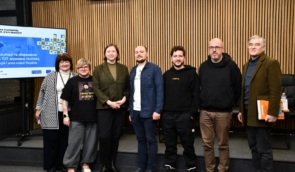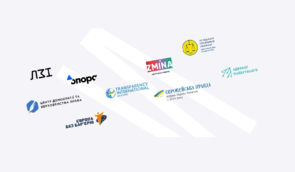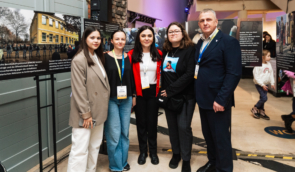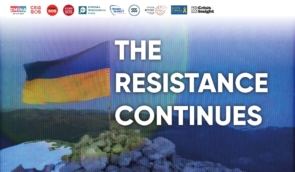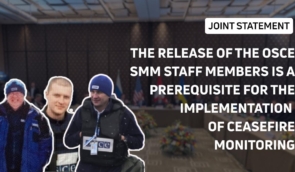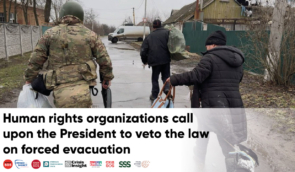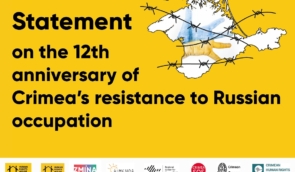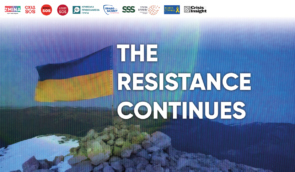Lustration as a response to post-deoccupation and post-war challenges: ZMINA presented an analytical note
On 5 June 2025, the Ukraine Crisis Media Center hosted a press conference regarding lustration, during which the analytical note “How can lustration become one of the tools to overcome the consequences of Russian armed aggression against Ukraine?” was presented.
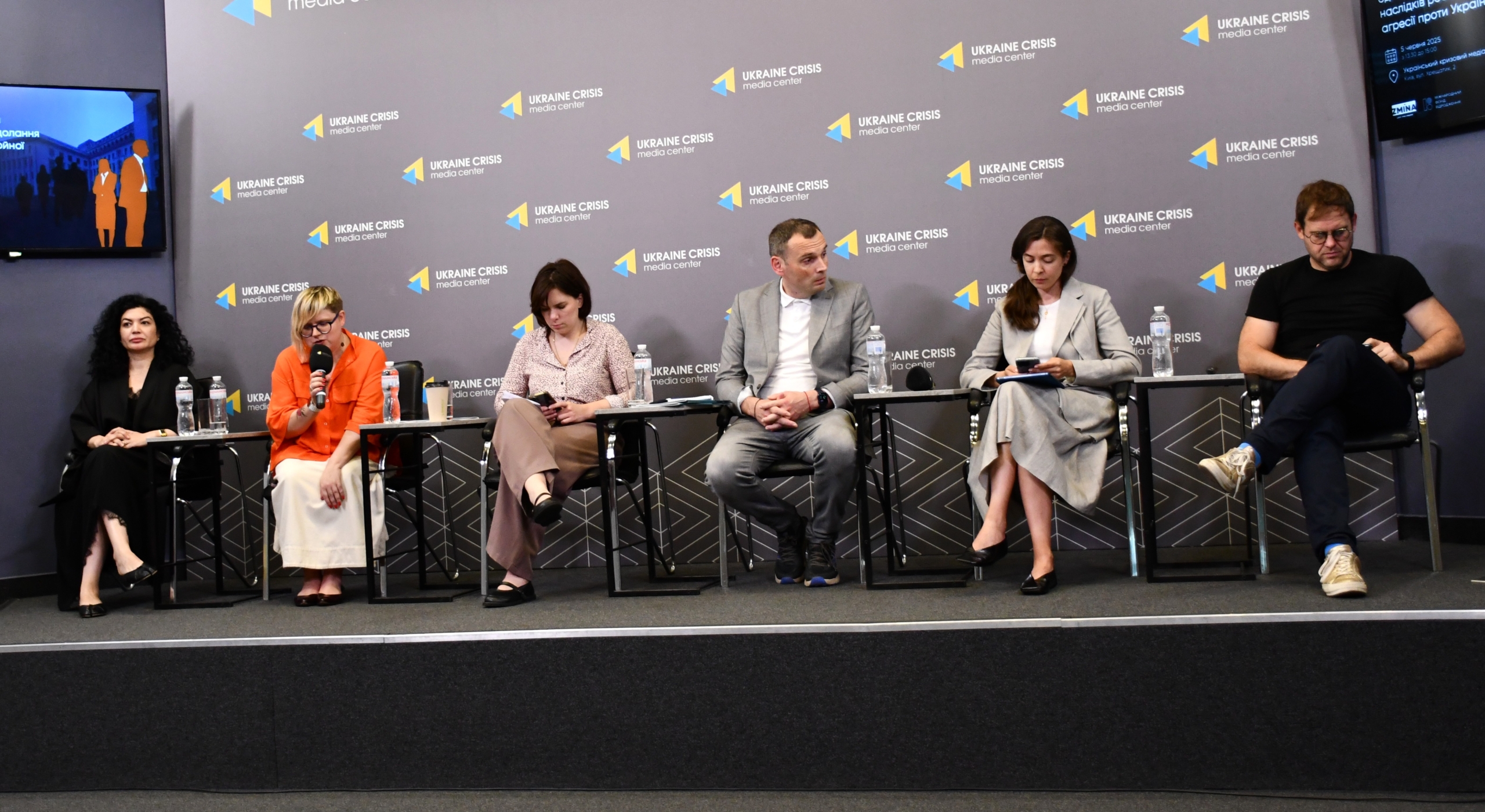
The event was organised by the Human Rights Centre ZMINA.
Since the start of the full-scale war, Ukraine has faced the need to respond to the facts of citizens’ collaboration with the occupation authorities. Today, criminal prosecution for collaborationism is the main tool of the state response, but it does not cover all cases and does not guarantee the full restoration of trust in the authorities.
In this context, lustration measures can become an important element of transitional justice. They can not only protect public administration from individuals compromised by cooperation with the aggressor, but also contribute to the formation of a transparent memorialisation policy, protect democratic institutions and strengthen public trust in government decisions.
The moderator of the press conference, Alena Lunova, Advocacy Director of the Human Rights Centre ZMINA, opened the press conference by stressing that the preparation of the analytical note was a continuation of the search for solutions to the challenges of overcoming the consequences of armed aggression against Ukraine.
“Lustration, or checks, is one of the classic tools used to overcome the consequences of the totalitarian past and massive human rights violations. Ukraine had experience of lustration after 2014, but it can hardly be called successful. However, this experience should definitely be considered when building a new lustration model. Currently, the state applies criminal liability in cases where a person may have compromised themselves by cooperating with Russia or its occupation authorities. However, given the scale of the challenges, we need to think about other more systemic response mechanisms,” said Alena Lunova.
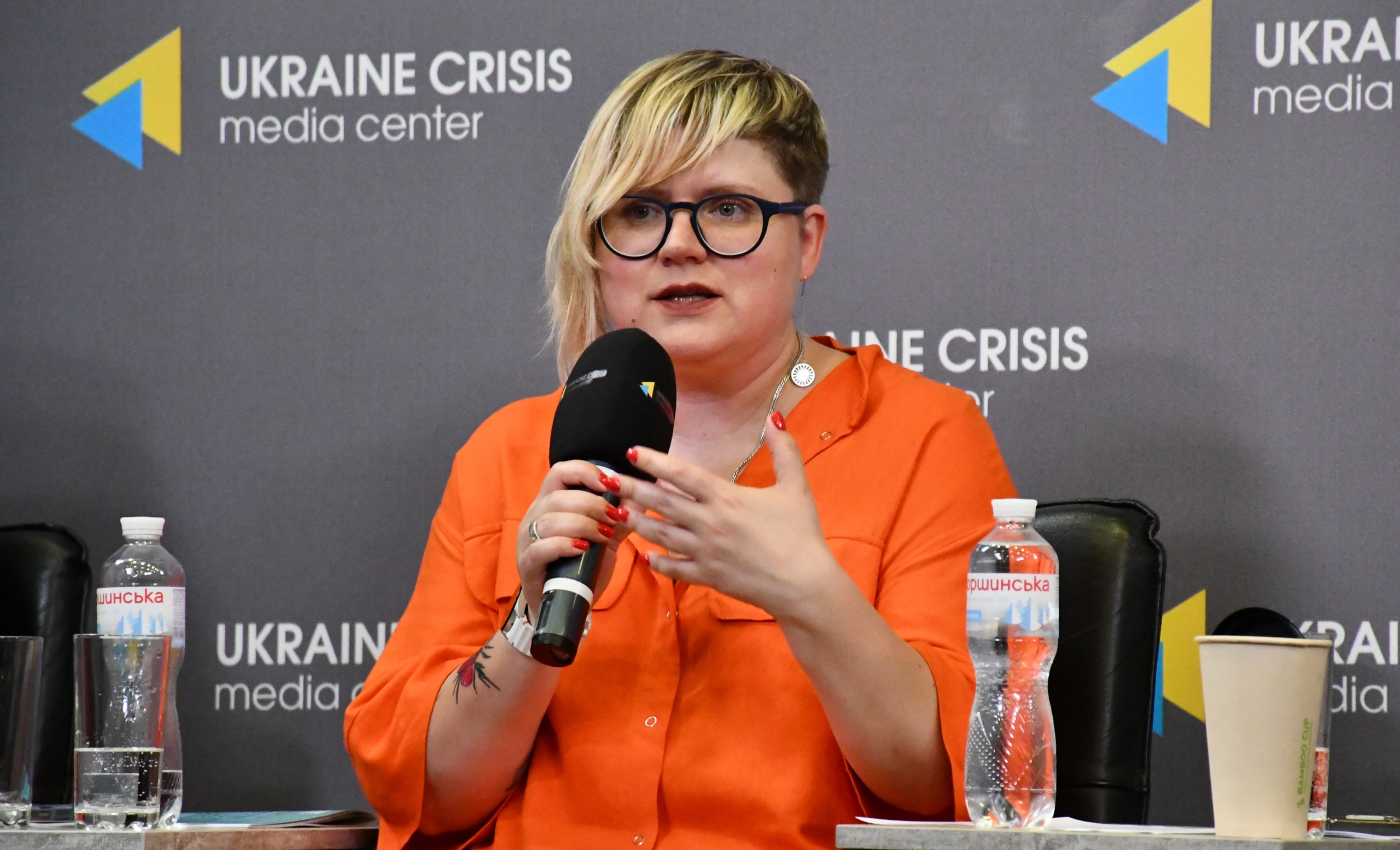 Alena Lunova
Alena LunovaThe Permanent Representative of the President of Ukraine in the Autonomous Republic of Crimea, Olha Kuryshko, noted that Ukraine has developed strategic documents for the reintegration of the de-occupied territories of Ukraine, which include elements of transitional justice. These documents are the result of the joint work of state institutions, human rights organisations and experts.
“We understand the challenges caused by the ongoing occupation of Ukraine’s territory and are looking for ways to solve them. One of them is the restoration of the activities of state authorities, the restart of the management system, and the formation of a stable personnel policy. The development and implementation of a lustration mechanism as part of transitional justice can help in these processes,” Kuryshko said.
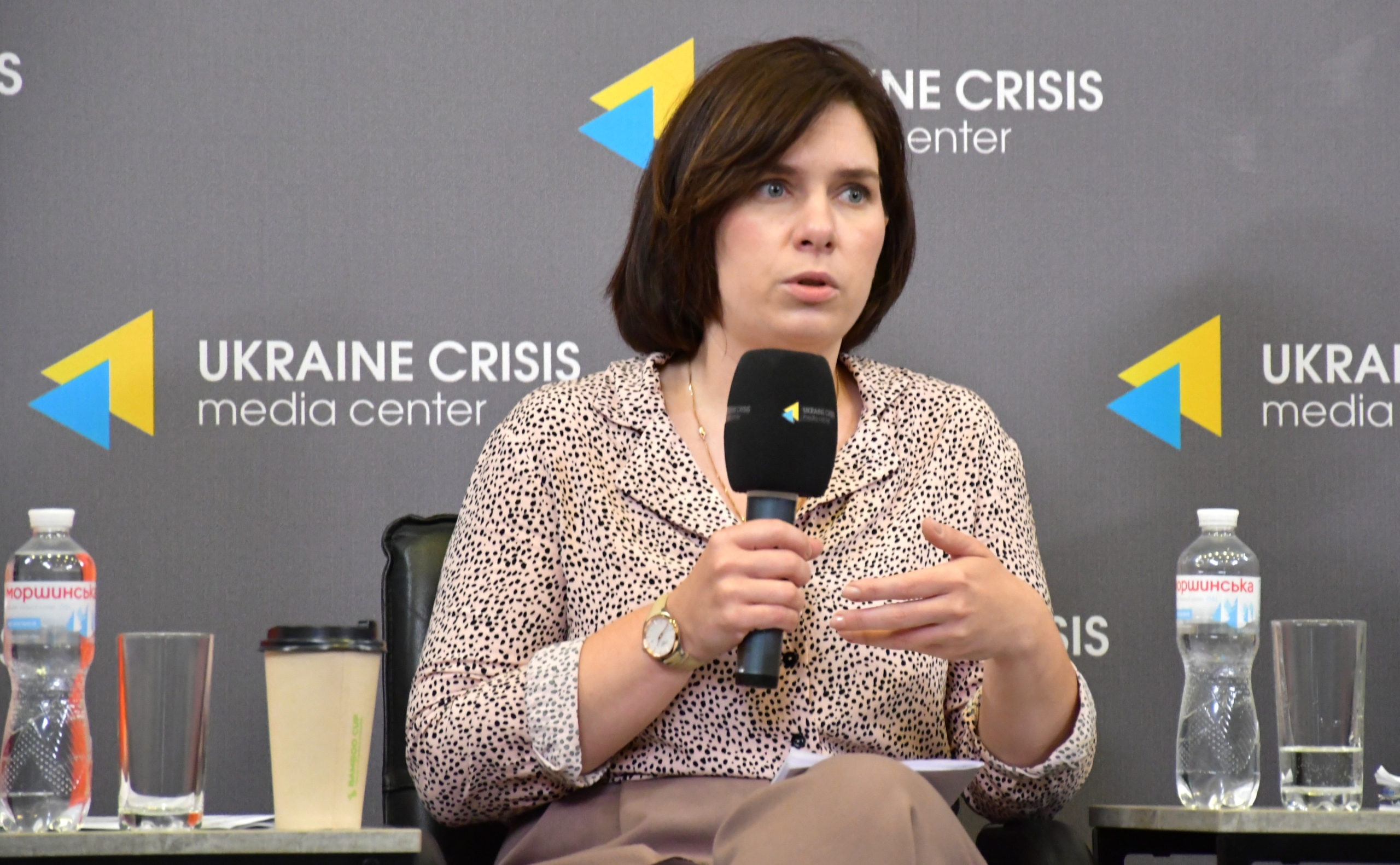 Olha Kuryshko
Olha KuryshkoDaria Svyrydova, Partner of Azones Law Firm and co-author of the analytical note, noted that lustration is not just a way to cleanse the government, it is a tool to ensure trust in the existing and restored authorities after de-occupation. It is also an important component of the memory policy, which allows to document the facts of cooperation with the enemy and to prevent revenge and influence of pro-Russian forces on state-building: “The public’s sense of justice following lustration should ensure the quality of the procedure. International approaches provide for an administrative procedure of lustration checks in the format of an independent collegial mechanism with appropriate public control. For example, such an independent collegial body could be established in Ukraine, either as a commission under the central executive body or the Ukrainian Institute of National Memory“.
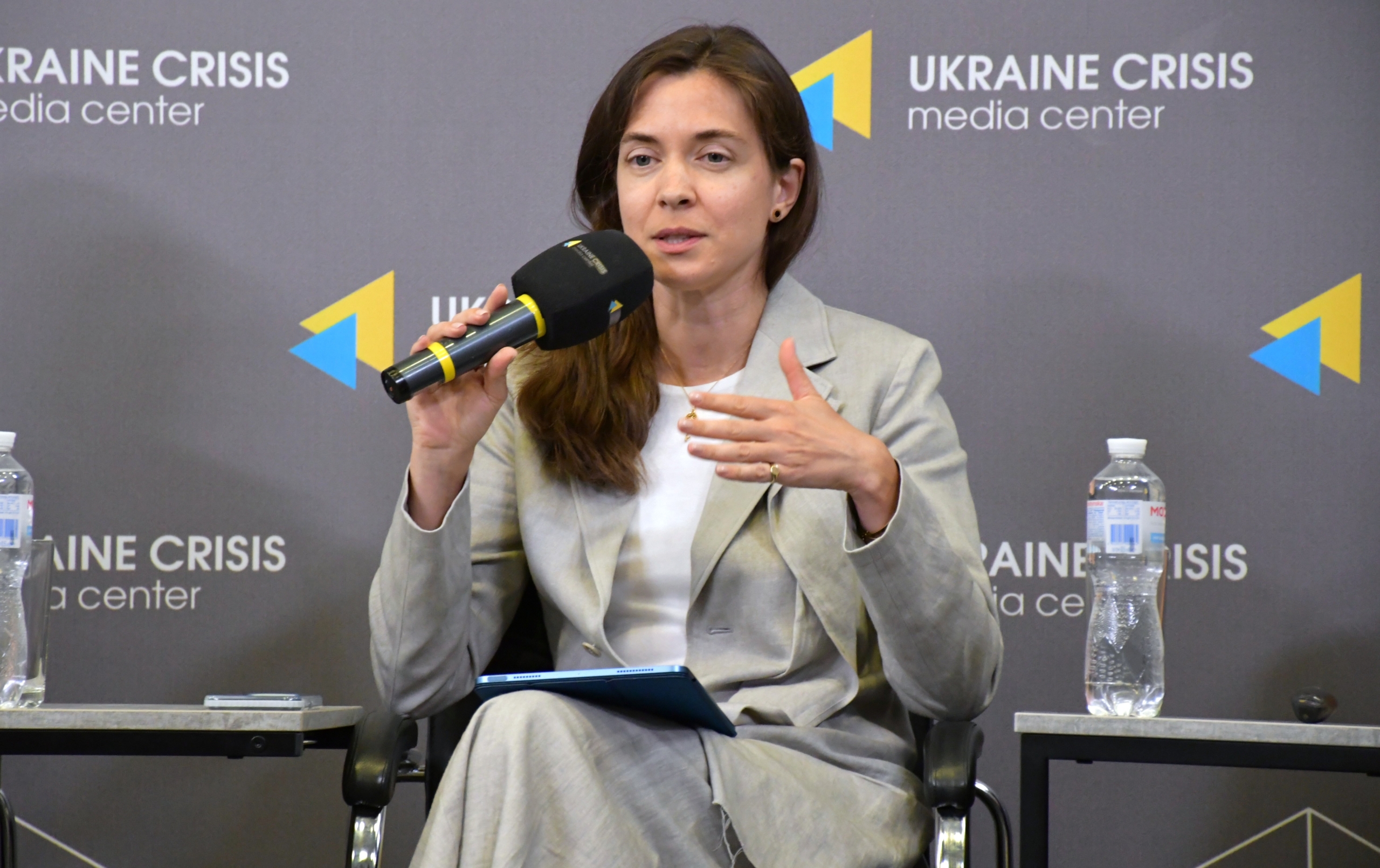 Daria Svyrydova
Daria SvyrydovaMaksym Ieligulashvili, expert of the Ukraine 5 AM Coalition, noted that both before and during the full-scale Russian invasion, public opinion clearly demonstrated readiness and demand for a comprehensive approach to ensuring justice – a combination of justice tools and other, additional mechanisms that can provide guarantees and a sense of justice. The second important component is the readiness to target the use of these mechanisms: “As soon as the questions posed to respondents provide specifics and choices, we get quite clear expectations about the priorities in ensuring justice and relevant mechanisms. Unfortunately, this rather long-standing public demand is not taken into account either at the legislative level or within law enforcement“.
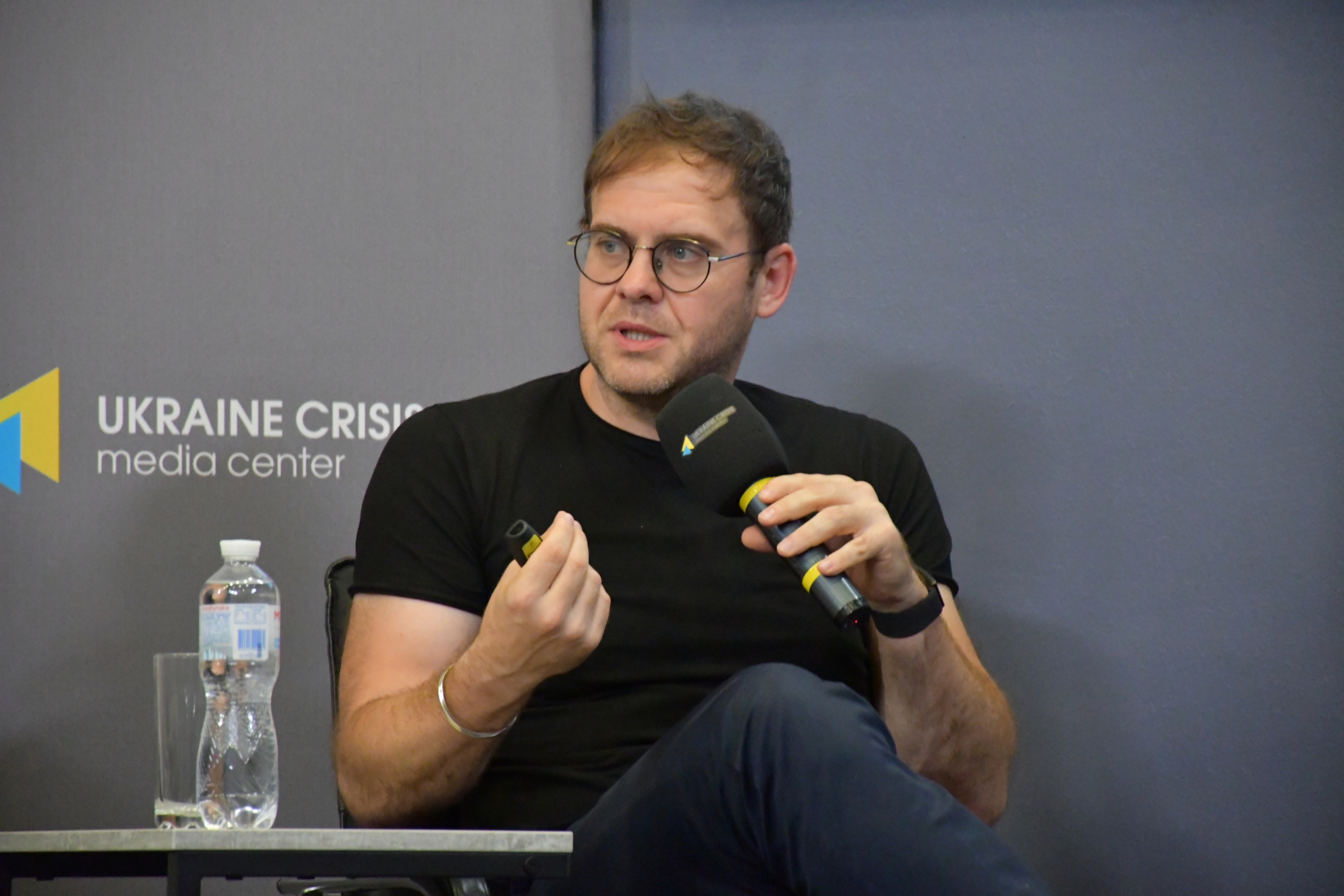 Maksym Ieligulashvili
Maksym IeligulashviliOleksandr Kliuzhev, expert on electoral law reform, Adviser to the Chair of the Central Election Commission, stressed that the protection of democratic institutions is a legitimate task of the state in the context of the Russian Federation’s armed and hybrid aggression. According to him, like other democratic societies, Ukraine has to find an optimal balance between security measures and the need to preserve democratic standards of the electoral process. At the same time, it is extremely important to adhere to the Constitution of Ukraine, defining the specifics of protecting the electoral process from the influence of persons compromised by ties with the aggressor state: “Finding the right balance in such circumstances is not easy for any society. At the same time, it is an open and comprehensive dialogue between state institutions, primarily the parliament and a strong civil society, that remains Ukraine’s advantage“.
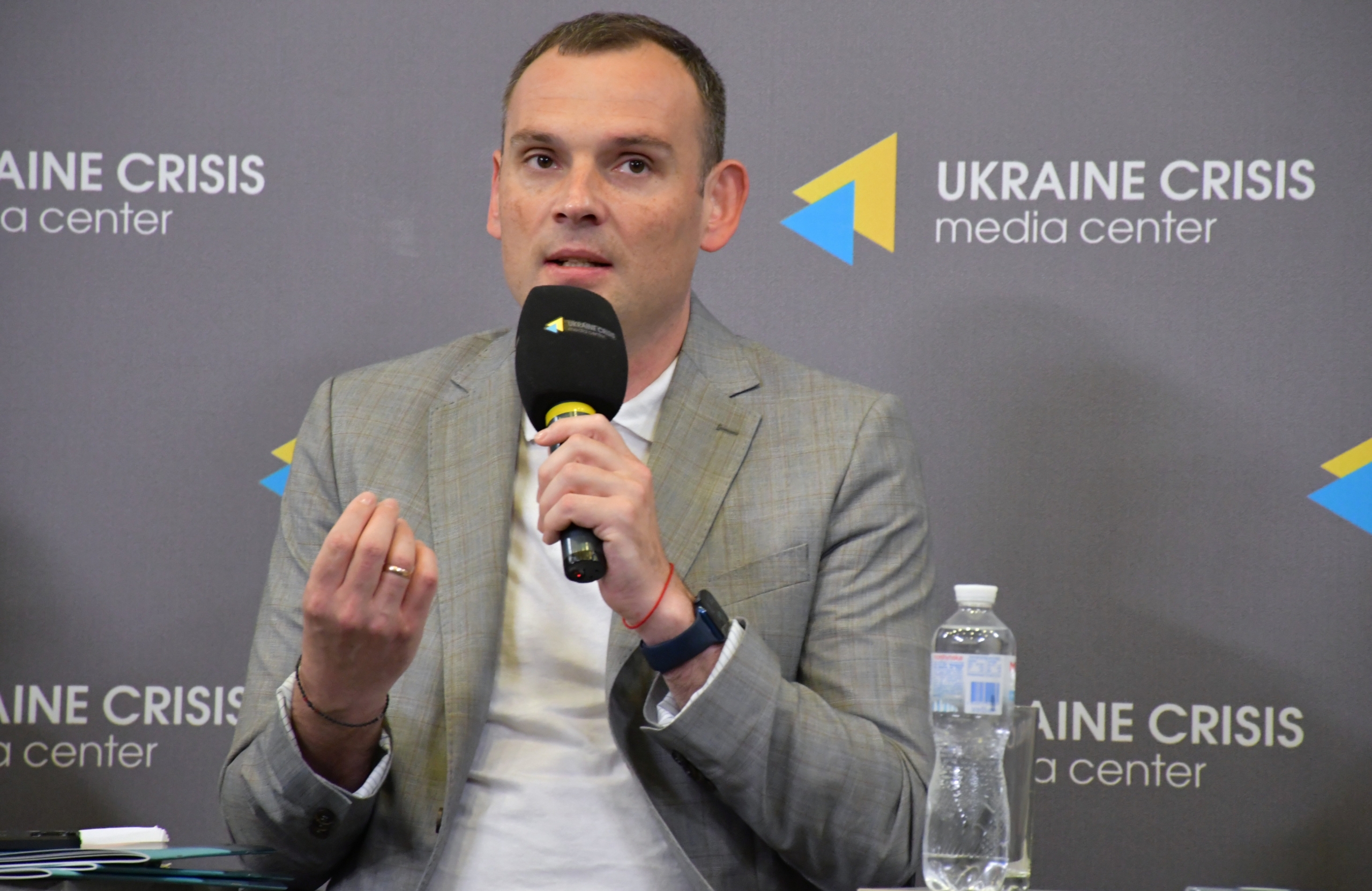 Oleksandr Kliuzhev
Oleksandr KliuzhevKliuzhev added that the model of solving the problem proposed in the note puts the interaction between voters and candidates at the centre. Voters should have the right to receive complete and accurate information about the candidates’ past in the context of Russian aggression, and candidates themselves should be obliged to provide truthful information during registration, understanding the sanctions for misleading voters.
In his personal opinion, the model presented in the note deserves further discussion.
Tamila Tasheva, Member of Parliament of Ukraine, stressed that the parliamentary discussion on lustration is ongoing, although not always in the public domain. According to her, many sensitive issues require preliminary discussion within the parliament.
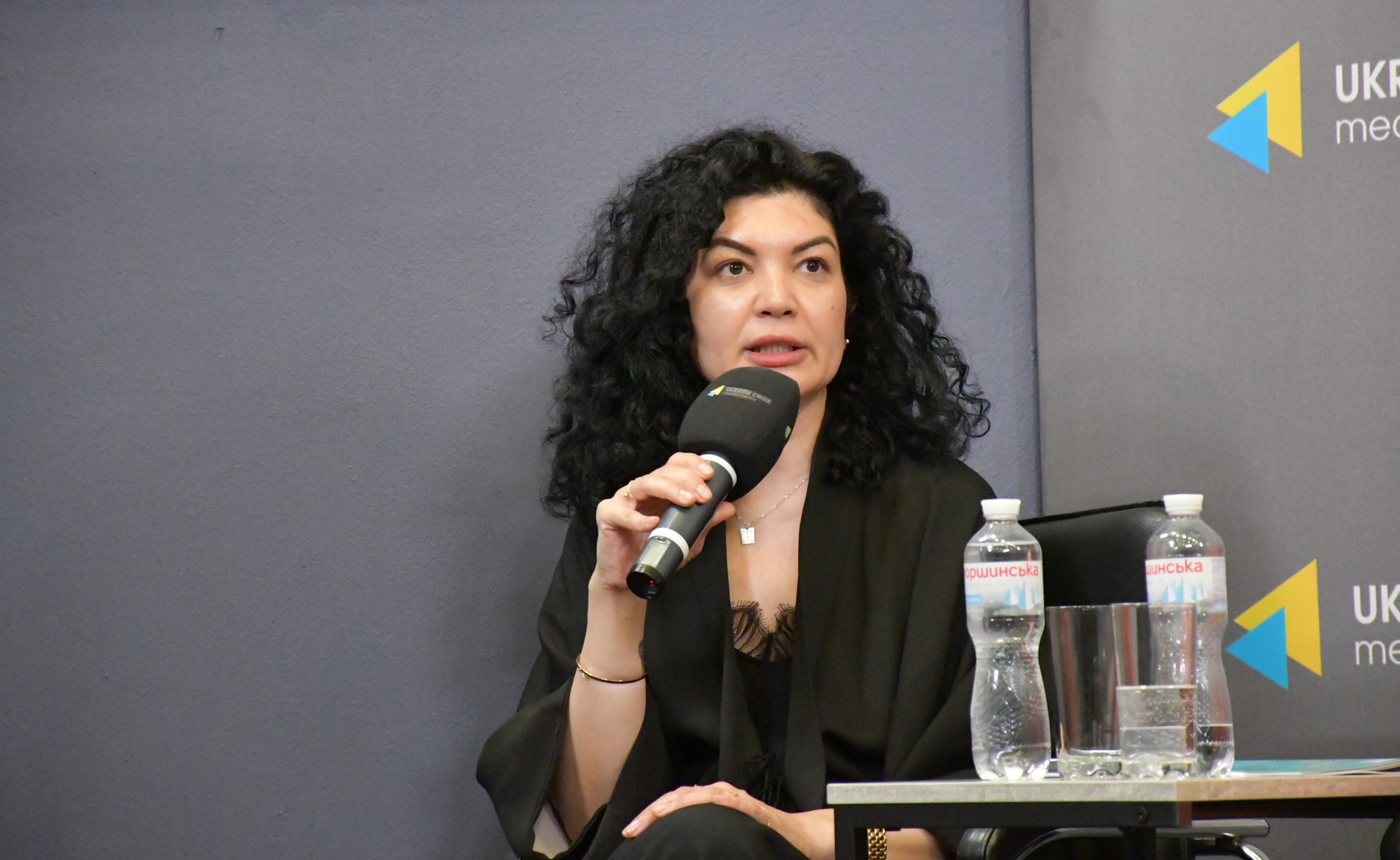 Tamila Tasheva
Tamila TashevaShe also reminded that work on analytical documents concerning post-deoccupation measures began in 2022 under the directive of the President of Ukraine, and the first presentations of these developments took place in 2023 with the participation of MPs and representatives of relevant parliamentary committees.
“There is a demand to punish collaborators, but also an understanding that some people had no choice. That is why lustration is not about criminal liability, but an element of the policy of reform and non-recurrence,” Tamila Tasheva said.
The MP also urged to continue the discussion – both public and expert – and noted that the current composition of the Verkhovna Rada has a historic mission in shaping a fair and balanced model of lustration checks.
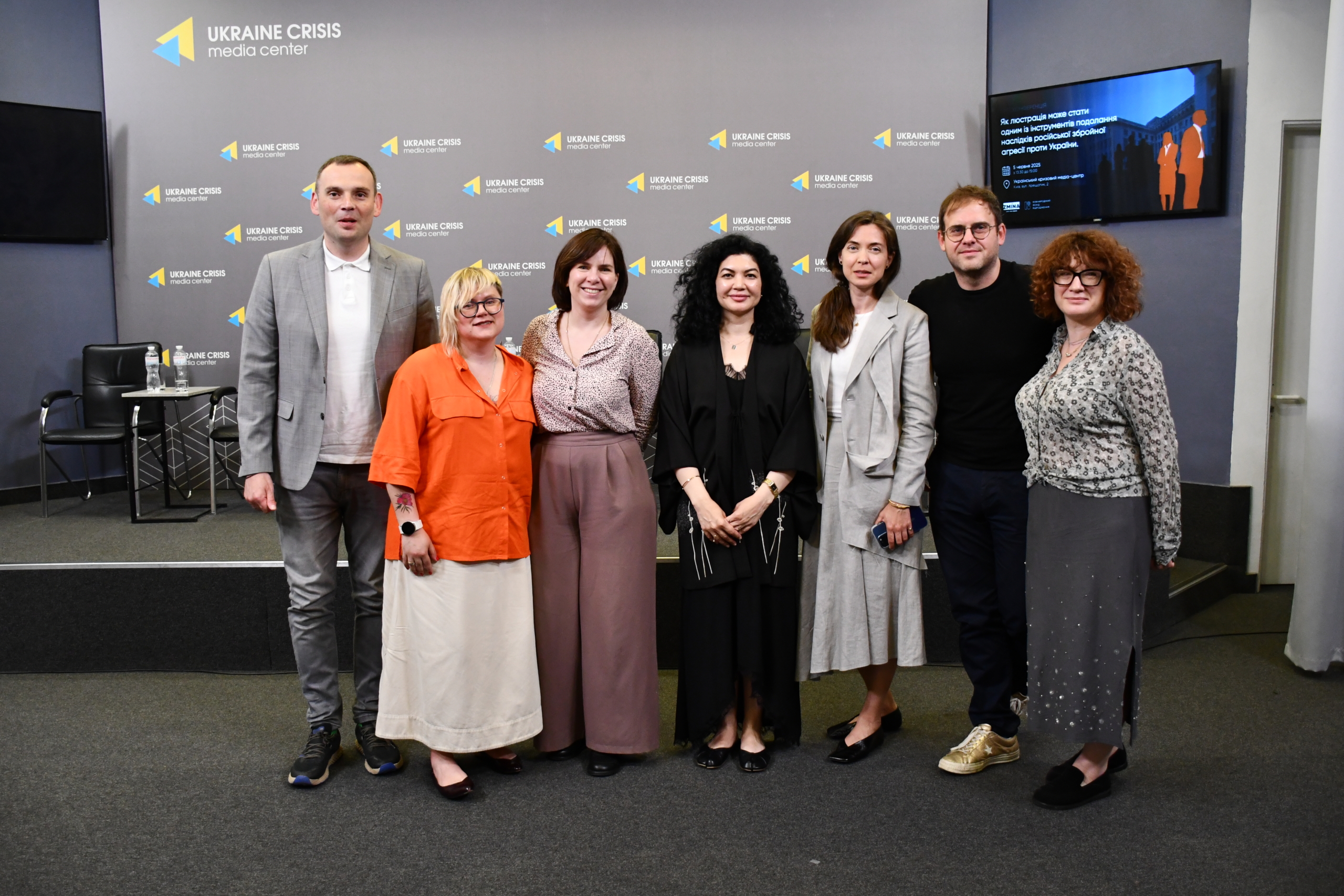
A video of the event can be found here:
https://www.youtube.com/live/uqEiBmHPjQY?si=J8P2e0y2ajR3wlUN
The text of the analytical note is available on the website of the Human Rights Centre ZMINA in Ukrainian and English.
The event was organised with the support of the International Renaissance Foundation. The positions expressed during the event are solely those of the authors and do not necessarily reflect the position of the Foundation.
If you have found a spelling error, please, notify us by selecting that text and pressing Ctrl+Enter.

